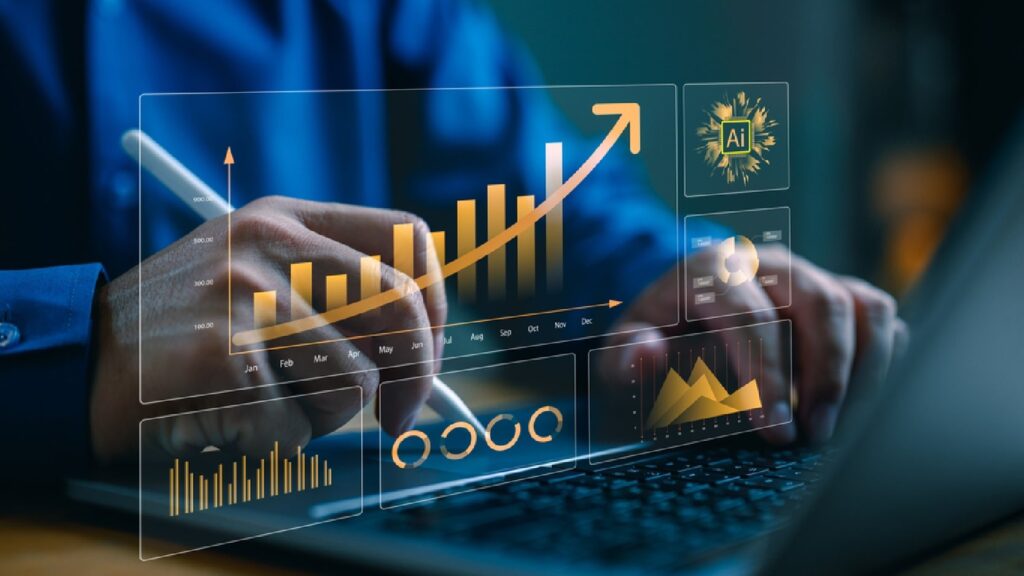
The Impact of AI on Performance Marketing.
Being in the fast-paced landscape of digital marketing, it is essential to stay ahead of the curve for brands aiming to capture and retain consumer attention. It goes without saying that one of the most transformative forces driving this evolution is Artificial Intelligence (AI). From personalized customer experiences to real-time decision-making, AI has transformed the way businesses approach performance marketing. In this blog, we delve into the profound impact of AI on performance marketing strategies, exploring its role in enhancing customer engagement, optimizing ad campaigns, and shaping the future of performance marketing in the digital age. Come join us as we uncover the power of AI and its implications for businesses striving to thrive in an increasingly competitive marketplace.
The Evolution of Performance Marketing
Before we look at anything else, let us briefly have a look at the evolution of performance marketing. In its initial stages, performance marketing majorly focused on volume over engagement, using basic analytics and broad targeting with limited tools for optimization. This changed when the digital era introduced advanced analytics and sophisticated targeting, leveraging online behaviors and demographics. However, the strategies remained largely manual and intuition-based.
With the introduction of AI, performance marketing was revolutionized with advanced algorithms that were capable of processing complex data, enabling precise targeting and personalization. This is when AI’s predictive capabilities were noticed as they allowed for accurate forecasting and dynamic campaign adjustments.
Impact of AI on Performance Marketing
Let us have a look at some ways that AI in Digital marketing has been impacted. They are listed as below:
Personalization at Scale
AI enables performance marketing to achieve personalization at scale. By analyzing customer data such as browsing behavior, purchase history, and demographic information, AI algorithms deliver highly targeted ads tailored to individual consumers. This increased relevance boosts engagement, conversion rates, and ultimately, ROAS for your brand.
Predictive Analytics for Better Targeting
AI shines in predictive analytics for performance marketing. By forecasting future consumer behavior based on historical data, these technologies help marketers anticipate needs and preferences. D2C brands can use these predictions to tailor marketing efforts, targeting the right audience at the right time for improved campaign efficiency.
Optimizing Ad Spend with AI
AI-driven algorithms optimize ad spend by continuously analyzing campaign performance and reallocating budgets to the most effective channels and tactics. This dynamic approach ensures efficient use of marketing resources, maximizing returns and minimizing wasted expenditure.
Enhancing Customer Experience through Chatbots
AI-powered chatbots significantly enhance customer experience by providing instant, personalized assistance. These virtual assistants can handle inquiries, offer product recommendations, and assist with the purchasing process, creating a seamless and interactive experience that boosts customer satisfaction and loyalty.
Real-Time Decision Making
AI enables marketers to make swift, data-driven decisions with their real-time processing capabilities. This agility is essential in digital marketing, where consumer preferences and market trends change rapidly. Leveraging real-time analytics allows your brand, with the help of performance marketing agencies like The Virtual Salt, to adapt strategies quickly, capitalize on emerging opportunities, and mitigate potential risks.
AI’s Impact on Google’s Performance Marketing Tools
Since the introduction of AI in performance marketing, even Google has seamlessly integrated it into its marketing tools, enhancing platforms like Google Ads and Analytics with advanced targeting and optimization capabilities. Let us have a look at a some of these AI-Driven tools and algorithms
- Smart Bidding: Google’s Smart Bidding employs AI to optimize bids in real-time, aiming to maximize conversions and value. It analyzes a wide range of signals, including device, location, time of day, and user behavior, to determine the most effective bid.
- Predictive Analytics: Google Analytics uses AI to predict future customer actions, such as potential churn or likelihood to convert, allowing marketers to tailor their strategies more effectively.
AI’s Role in Facebook’s Performance Marketing Tools
Facebook as a platform has harnessed AI to advance its advertising capabilities. By utilizing advanced algorithms to analyze user data and deliver highly targeted ad experiences, it has become a crucial tool for performance marketers. Here is how Facebook has done some specific AI implementations.
- Lookalike Audiences: Facebook’s AI analyzes existing customer data to identify new prospects with similar characteristics, effectively expanding the potential customer base.
- Dynamic Ads: AI-driven Dynamic Ads automatically display the most relevant products to users based on their past behavior, interests, and intent.
Conclusion
As AI technologies continue to evolve, their impact on performance marketing is expected to expand significantly. We can anticipate more advanced personalization, enhanced predictive analytics, and increased automation efficiency. Brands that embrace and integrate these technologies into their marketing strategies will be well-positioned to stay ahead of the competition and achieve sustainable growth.

